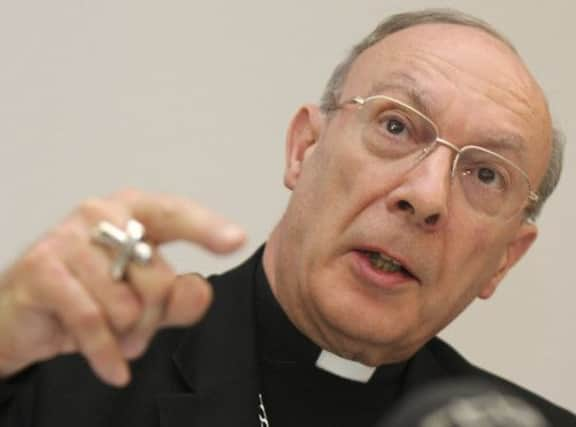Belgium considers bringing in child euthanasia law


Advocates argue that euthanasia for children, with the consent of their parents, is necessary to give families an option in a desperately painful situation. But opponents have questioned whether children can reasonably decide to end their own lives.
Belgium is already a euthanasia pioneer. It legalised the practice for adults in 2002. In the past decade, the number of reported cases per year has risen from 235 deaths in 2003 to 1,432 in 2012, the last year for which statistics are available. Doctors usually give patients a powerful sedative before injecting another drug to stop their heart.
Advertisement
Hide AdAdvertisement
Hide AdOnly a few countries have legalised euthanasia or anything approaching it. In the Netherlands, euthanasia is legal under specific circumstances and for children over the age of 12 with parental consent. Elsewhere in Europe, euthanasia is only legal in Luxembourg. Assisted suicide, where doctors help a patient to die but do not actively kill them, is allowed in Switzerland.
In Belgium, the ruling Socialist party has proposed the bill expanding the right of euthanasia. The Christian Democratic Flemish party has vowed to oppose the legislation and to challenge it in the European Court of Human Rights if it passes. A final decision must be approved by parliament and could take months.
In the meantime, the Senate has heard testimony on both sides of the issue.
“It is strange that minors are considered legally incompetent in key areas, such as getting married, but might [be able] to decide to die,” Catholic Archbishop Andre-Joseph Leonard testified.
The archbishop said alternatives such as palliative sedation make euthanasia unnecessary – and relieves doctors of the burden of having to kill patients. In palliative sedation, patients are sedated and life-sustaining support is withdrawn so they starve to death. The process can take days.
But the debate has extended to medical ethicists and professionals far from Belgium. Charles Foster, who teaches medical law and ethics at Oxford University, believes children could not have the capacity to make an informed decision about euthanasia since even adults struggle with the concept.
“It often happens that when people get into the circumstances they had so feared earlier, they manage to cling on all the more,” he said. “Children, like everyone else, may not be able to anticipate how much they will value their lives if they were not killed.”
But Dr Gerlant van Berlaer, a paediatric oncologist at the Universitair Ziekenhuis Brussels hospital, says the changes would legalise what is already happening informally. He said cases of euthanasia in children are rare and estimates about ten to 100 cases in Belgium every year might qualify.
Advertisement
Hide AdAdvertisement
Hide Ad“Children have different ways of asking for things but they face the same questions as adults when they’re terminally sick,” Dr van Berlaer said. “Sometimes it’s a sister who tells us her brother doesn’t want to go back to the hospital and is asking for a solution,” he said. “Today if these families find themselves [in that situation], we’re not able to help them, except in dark and questionable ways.”